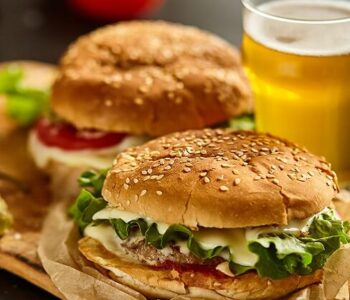In 30 seconds…
If you think you may have low testosterone, or “Low-T”, testosterone replacement therapy may not always be the answer, as sometimes it may well be. Instead, there are many ways to increase testosterone levels naturally, which you may want to try first.
Natural testosterone boosters can beat some of the possible symptoms of low-T, a condition which can occur as a result of ageing or an underlying health condition. Symptoms include decreased libido, changes in body fat levels, erectile dysfunction, and fatigue.
Simple lifestyle changes, including exercising regularly and sleeping well, can make a big difference to your testosterone levels. And, in the meantime, things like vitamin D can help too.
Testosterone is one of the few hormones that most of us know by name. Associated with fast cars, big muscles, and a serious sex drive, it is to many the chemical that makes men properly male.
Yet it’s this idea that testosterone equals masculinity that makes low testosterone (or “Low-T”, as it’s known) such a difficult condition to deal with. The physical symptoms are distressing enough; the emotional response can be devastating.
Luckily, there are options to treat Low-T – and these don’t need to be as radical as testosterone replacement therapy (TRT). Rather, nature has given us many ways to increase testosterone levels without medical intervention.
And in this article, we’re going to look at some of these natural testosterone boosters.
What Does Testosterone Do for Us?
Testosterone’s reputation precedes it. However, while incredibly important, this hormone is not limited to those characteristics we consider “manly”.
Rather, testosterone is an essential hormone for both men and women. Hormones are chemical messengers transported in the bloodstream that regulate certain processes, behaviours, and functions – and testosterone helps develop bone density, sex drive, and body fat distribution in all genders.
Testosterone’s role is much more pronounced in men, however. It’s an androgen; a hormone responsible for male characteristics, including facial hair growth, sperm development, and the growth of muscle mass. It also plays a crucial role in the growth of male genitalia, including the testicles and prostate.
However, this is not to say that behaviours our culture believe to be “masculine” are affected by the hormone. No, high testosterone levels will not make you more competitive or a better leader, for example.
What are the Symptoms of Low Testosterone?
Low-T can have significant effects on the male body – and can be the result of injury, medical treatment such as chemotherapy, obesity or alcohol abuse, or another medical condition.
Testosterone deficiencies can also be the simple result of ageing, as testosterone levels decline naturally as men pass through puberty and get older. Natural testosterone levels decrease by 1% a year in most men, although the majority won’t experience any symptoms.
If you’re concerned that you’re experiencing Low-T, you should look out for some of the key symptoms. These include:
- Erectile dysfunction;
- Reduced sexual appetite;
- Reduction in your muscle mass and increased fat deposition.
Some men experience fatigue and low levels of energy as a result of Low-T – and some become depressed and irritable. Other symptoms include a sudden loss of body hair.
Natural Ways to Increase Testosterone Levels
If you’re experiencing these symptoms, don’t worry. A radical response is not necessarily required – and you should pause and consider your options before undergoing TRT or other hormonal therapy.
Rather, there are a number of ways to increase testosterone levels naturally. From lifestyle changes to dietary supplements, science suggests these natural testosterone boosters may help your hormone levels.
Sleep Well
A good night’s sleep is one of the most straightforward testosterone boosters out there. Besides being great for your mental and physical health in general, sleeping well seems to help regulate our hormones. Hormone production and secretion is linked to our circadian rhythms[i] – and it’s during sleep that most testosterone is released.[ii]
For example, one study found that [iii] after just a week of restricted sleep, testosterone levels were reduced in otherwise healthy men by 15%. Another study found that when compared to men who had eight hours of sleep a night, those who had four to six and less than four hours sleep respectively had 14% and 35% lower testosterone levels.[iv] That’s a significant difference.
As sleep and testosterone levels are closely linked, ensuring that you achieve a healthy seven to nine hours a night will be beneficial for your Low-T. However, for some, this might be difficult, as Low-T can affect your sleep too.[v]
Exercise Regularly
Like sleep, exercise is another powerful natural remedy – and there is evidence that it, too, can be effective in regulating hormone levels.
In one study that compared active and sedentary males,[vi] a strong link was observed between the amount of activity performed and levels of testosterone. Another study[vii] specifically looked at the link between exercise and testosterone in older men and found that the more active they were, the more testosterone they produced.
Some exercises, however, may be more effective than others. One study into weightlifting found that testosterone levels increased after training. Yet, a study of long-distance runners found that testosterone levels were actually lowered after exercise. This was thought to be because the participants had insufficient energy levels.
Keep Stress Low
Something else that exercise is good for is reducing stress levels. Low stress, in turn, can naturally increase testosterone levels.
This is because cortisol, the hormone released as a result of stress, naturally suppresses testosterone levels.[viii] Reducing stress levels prevents testosterone suppression.
Stress also causes other responses that affect testosterone levels. It has been seen to cause people to overeat[ix] and it can reduce the quality of sleep[x] – two things that don’t help testosterone production.
Finding ways to manage your stress – such as exercising regularly or trying meditation or mindfulness – can help give your testosterone levels a boost.
Maintain a Balanced Diet
The chemicals that your body produces are affected by what you eat – and this inevitably includes your testosterone levels. A balanced diet (one that includes all necessary nutrients and that doesn’t fluctuate dramatically) helps maintain healthy levels of your hormones.
Science has known for many years that men who are obese are more likely to experience Low-T,[xi] with studies suggesting that the more severe the condition, the lower the testosterone is likely to be.[xii]
People who eat lots of processed foods high in hydrogenated fats may experience impaired testicular function – and lower testosterone as a result.[xiii] Meanwhile, studies have suggested that high alcohol consumption inhibits the secretion of testosterone[xiv], potentially causing low testosterone in the long run.
Maintaining a balanced diet – including some of the foods that increase your testosterone levels – ensures that your body receives all of the nutrients it needs.
Try Vitamins – Like Vitamin D
Perhaps surprisingly, one of the most powerful vitamins for increasing your testosterone levels is vitamin D, the nutrient that you usually produce in exposure to the sun. Unfortunately, over 40% of adults in the US have a vitamin D deficiency.[xv]
One study found that daily doses of vitamin D can increase your testosterone levels by 25%,[xvi] while another found that the vitamin boosted testosterone for older people too.
Just being outside can help testosterone levels, while vitamin D supplements are effective too.

Keep those T levels up
The powerful threesome of Maca, Ginseng & Zinc is there to help you boost testosterone levels and, in turn, virility. Low T can be a libido killer.
Key Takeaways
Having optimum levels of testosterone is important for lots of different aspects of male health – from sexual health to muscle composition and mood.
Luckily, there are ways to boost your testosterone that do not require medical intervention. Maintaining a healthy lifestyle by eating well, exercising, and reducing stress can help improve testosterone levels.












